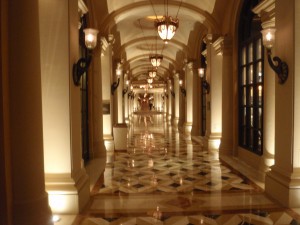And after some computer malfunction shenanigans, we are back!
In a little over a month I’m going to be on a stage, talking to a crowd (hopefully) about writing. Creating a story and characters and all of that. And as of now I have no idea what I’m going to say. I mean, there’ll be three of us, so I should only have to cover 15 minutes tops, but still. I suppose I could talk about the various stages I go through as a writer. Let’s review them together, shall we?
Stage one: “Didn’t I use to be a writer?”
I have written or co-written 30 plays, ranging from “They tell me it’s great” to “This had better never see the light of day.” And each time I finish one, I inevitably start to worry that it was my last. I’ll have no ideas, no plans, and the notion that I managed to write down all those words in the last script just starts seeming insane. A fluke. Surely I can’t do that again.
Stage two: Inspiration
And then an idea will hit. It could come from anywhere. Dreams. Conversations. Watching something and thinking “I could do that better.” Usually not the last one because if someone else had the idea first, using it myself just seems icky.
In this stage, the very basics of the idea begin to form. The skeletal structure of the story, just enough to fill a thirty-second elevator pitch (examples from my past work: “Muppet Show murder mystery,” or “Man seeks romantic advice from the Devil”). The core characters will start to take shape. Maybe a few patches of dialogue. I’ll mull the idea over, talk about it with close friends, colleagues or anyone who gets in my radius when I’m “chatty drunk” at a party. Some ideas never clear this stage, and I’m probably better off for that, but if the idea is clicking, I’ll commit to it. Then it gets tricky.
Stage three: Actual work
Now I have to take this rough idea and turn it into a functioning story. This is where I finally figure out what the story is about. Now that doesn’t mean the plot: plot is just what happens during the story. What is the central theme? For example, the Dark Knight is about order vs. chaos. Inception is about letting go, or on another level storytelling itself. The Hurt Locker is about how you can lose yourself in the thrill of danger. Most of my recent plays are about getting out of your own way and letting yourself try to be happy. I don’t know, maybe I think if I write it down enough times I’ll actually learn to do it.
And yes, you also need a plot. Supporting cast. How will this resolve? Will the protagonist learn a lesson and triumph, or either fail to learn the lesson or learn it too late and fail? I prefer the former, a good friend and colleague prefers the latter, but neither is inherently better. Depends on execution. Which brings us to…
Stage four: Write it down
Depending on how long I ponce around talking about that play I’m going to write (do be careful: anyone can TALK about writing something, and it’s easy to get stuck on that step, but you have to move past that eventually) this is the longest part. When the idea’s really clicking, and the characters are well realized in my head, the characters basically write themselves. Sadly, they don’t write themselves in any useful fashion. Creating swaths of dialogue in my head is easy; actually writing it down is much harder and more time-consuming. But with time and focus (each their own brand of tricky), I eventually crank out a first draft. Now we enter the panic stage.
Stage five: Showing it to people
Is the script any good? I don’t know. I never know. First drafts have been called excellent or the worst thing I’ve ever done, and until that moment I couldn’t have guessed which would be which. Everything seems good while I’m writing it, at least for the most part, so I need someone to tell me what is and isn’t working. And the act of giving my script to someone to read is a weird two-step process: first I’m incredibly nervous to show it to anyone (on account of it might be terrible), but as soon as I’ve sent it to them I almost immediately switch to desperate to hear what they thought. From there, the editing begins.
Stage six: Draft upon draft
This one’s pretty simple, really. Get feedback, find out what needs fixing, then fix it. Repeat. I prefer to gather people for workshops, in which we read the script aloud and then people give me their thoughts. It does take a certain amount of guts to go through this process, but until you can hear people say they didn’t like something about your story without wigging out you’ll never improve.
Stage seven: editing forever
Art is never finished, merely abandoned. There will always be something that could be improved. I’ve come up with ways to polish a play while in the middle of a performace. Not an ideal time, because it’s too late to chage anything this time around and dwelling on it can make you miss your cue, but the point is the more you grow and evolve as a writer the more flaws you’ll see in your past work. Scripts I used to be incredibly proud of now embarrass me a little, but come on. I was 21.
There’s always going to be the drive to improve. The need to perfect a story. Because the better it is, the better the odds are that I can use it to trick people into liking me.
Look, I never said my creative process was easy or sane. But it seems to work.

